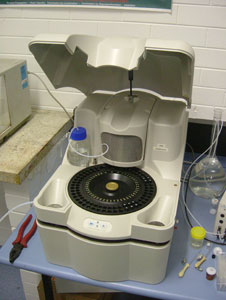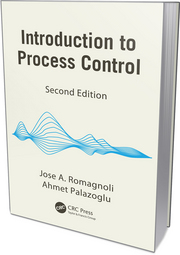|
We at the PSE group develop solutions and assist companies on a consultancy basis for a wide range of process industries. The
following are some examples of industries supported:
- Pulp and paper
- Mining and metallurgy
- Petrochemicals
- Biochemical and pharmaceuticals
- Desalination and wastewater treatment
- Food industries
With the skill and know-how available within the PSE Group, it is possible to tackle the most daunting of process engineering problems. The
PSE staff are highly qualified in a range of disciplines and have over the years accumulated experience and know-how in many areas. Relying
on a core of scientific and fundamental process systems engineering knowledge, the group is capable of realising the full potential of a
process whether it is large or small scale.
With expertise in process identification, modelling, analysis, optimisation, control and process design, the PSE Group allows industries
to exploit the full potential of their processes.
| Modelling |
|
The PSE Group is heavily model oriented with a significantly large sector of its research dedicated towards modelling activities. Simple
models are always the best for process control and are readily developed using process systems identification techniques. The PSE Group
is also capable of building more complex models with intricate mechanistic detail for any application and at any scale. Some examples
of complex models already completed include a dynamic digester model and a dynamic tert-polymerisation model amongst others. Our
experience in multi-scale modelling allows us to build models of processes possessing variability in scale such as in a dynamic
crystallisation facility model, where the crystal size on the micro-scale is modelled simultaneously alongside that of the plant at
the unit operation scale. Once a model is available many things are then possible.
|
| Analysis |
|
The PSE Group prides itself on its practicality. Although it is heavily model oriented, the Group also relies uncompromisingly on
experimental and plant data. Analysis of process systems is carried out experimentally in our multi-faceted facilities to gain
experiential knowledge and validate theoretical propositions. This evidence-based research approach results in confidence in
developed process models and allows simulations to be completed and executed for analysis purposes.
|
| Optimisation and Control |
|
The PSE Group has a vast track record in control and optimisation with many control implementations over the last couple of
decades. Processes are optimised using validated models. Dynamic optimisation is possible and the outcome provides time profiles of
control variables. Conventional controllers including feedback, feedforward, cascade, compensation and ratio are readily designed and
tuned by the PSE Group. Further, the Group has amassed expertise in advanced model-based control techniques and methodologies.
Model-predictive control (MPC) has been implemented by us to control a variety of processes. Implementation on modern distributed
control systems (DCS) including Honeywell, ABB and Schnieder have been done.
|
| Process Design |
|
Having designed a number of process and constructed a number of plants the PSE Group can serve the design and retrofit needs of a
given process. The Group specialises in pilot plant design and commissioning and our installations at the Department of Chemical
Engineering showcase our experience in this (refer to Facilities link on this site).
|
| Educational and Training Services |
|
The dissemination of knowledge and experience is part and parcel of our work. The PSE Group provides a number of courses in Process
Systems Engineering at both undergraduate and postgraduate levels. Educational organisation planning curriculum reform or developing
new teaching and learning strategies may consult with the PSE Group. Our experience in curriculum development and our innovative
teaching and learning methods will assist in improving the educational experience of Process Systems Engineering Students. High
quality training is also provided with industrial short courses at the Department or onsite that are catered to specific needs.
Those attending these courses will typically be exposed to hand-on training alongside theoretical learning. Real industrial
facilities are used in the training Please contact Prof. Jose Romagnoli for further details.
|
| Analytical Services |
|
Analytical services are also available for specialty measurements. Recently the Group acquired the PL-PSDA instrument for the
measurement of polymer particle size. This instrument provides accurate size and size distribution measurements of nano-sized particles.
|
 |
|


